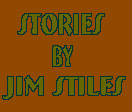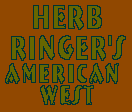

"Remembering Ober"
I'm happy that long overdue notice is being given to Ernest Oberholtzer who was a principal, and principled, leader in the fight to protect a big chunk of territory on both sides of the Minnesota-Ontario border: the Quetico-Superior wilderness. I'd like to say a few words about his life, maybe for perspective, most certainly to take a break from now. Ober--everybody called him that--was born in 1884 in Davenport, Iowa. After his mother divorced her husband she took her son back to her parents' grand Davenport mansion where the living was easy; but after the death of her parents, mother and son were financially on their own. Somehow, there was enough money to send him to Harvard where he studied with luminaries such as George Santayana and William James. Then he did a limited-budget biking tour of England with the future poet, Conrad Aiken, a double achievement: getting along with a comrade very different in personality, and enduring long days of physical exertion in spite of a weak heart, a consequence of an earlier bout of rheumatic fever. Later, when that heart laid him low; his doctor offered about a year to live. Ober struck out for the border lakes, partnered with Indians, put in about 3,000 paddling miles in one summer. One of his Indian companions, an Ojibwe, was known to English speakers as Billy Magee. That was the beginning. In 1912 Ober sent a message to Billy Magee, telling him that he was planning a canoe journey into the wildest country in all of Canada, that it would be the hardest thing Billy would ever do in all his life and they would be gone a long time. Billy replied, as forwarded by Ober's friend, a trader among the Indians, saying--in the white man's rendition of Billy's "imperfect" English--"Guess ready go end earth." They paddled from The Pas in Manitoba, veered into Saskatchewan, then north again, entering the Barren Ground, a white space on the map, a place that hadn't been visited by white people since the travels of Samuel Hearne in the eighteenth century. Ober measured distances and directions by a dollar-and-a-half watch, a compass and estimates of canoe speed, making allowance for wind drift and currents, making a map. They were in a country of lakes and wild rivers. They were gone from June 25 to November 5. Sometimes they were lost, sometimes windbound. At one point, in Northwest Territory, Ober left a message in a can on a hilltop, more or less saying farewell. After much anguish of uncertainty, they found the river that ran east into Hudson Bay, so far north that they met an Inuit family that gave unstinting aid. But Winter was moving in fast, they had to paddle hard in October-November weather, down the bleak shores of Hudson Bay to beat the freeze-up, barely making it. Think about this: two men, one a fifty year old Indian, one a twenty eight year old white, four months in a canoe in baffling terrain, portaging, paddling, studying rapids to decide whether to portage or run, enduring the drag of windbound days. You're going to say, "They must have hated each other." They did have more than one quarrel. One bad one came near the end when Billy sulked, refused to speak, refused to paddle. They had it out, paddled on, got home and remained friends. Ober, wanting to get started on his career of wilderness traveller and writer, immediately sent to United Press a proposal to write up the adventure. UP immediately sent a rejection. It is said that Ober tried several times to write a full account of "the Hudson Bay trip," but never did get it down on paper. Somewhere in his correspondence is a remark that he objected to the necessity to "establish some sort of record or do stunts." I read this as a definite shying away from the usual masculine bragging about personal "records," and/or dangers and sufferings endured. Good, but I wonder if there was also something else holding him back, the fact that the "Hudson Bay trip" was not his alone; its very heart was the struggle of two men, not one. What right had the white man to portray to other whites the secrets of that? We can speculate further, that if a writer is disgusted by stunts and records it signifies an effort to get at a greater complexity. That means, ultimately, a fair degree of self-exposure. Ober might have balked at that. Later, in the long struggle for the Quetico-Superior, Ober wrote hundreds of letters, spoke out in endless meetings and hearings, but hardly anything of his found its way onto the pages of books or magazines. Unlike Bob Marshall who wrote fluently about his adventures in Alaska and in defense of wild country, and unlike other wilderness champions such as aristocratic Benton MackKaye, rebel Ed Abbey, god-obsessed John Muir, charismatic David Brower, Ober never did manage to write much about his exploits. He did publish a few things in Youth Companion and one story in Boys Magazine. but editors complained that his style was "constrained" and "artificial." Such meager publishing successes did not a living make. The role of wilderness authority and popular writer closed for him, though the "material" was there, in great abundance: his long and demanding expeditions by canoe, often with Ojibwe friends, often with his "second-best fiddle" as part of the portage luggage, and learning the language and trying against heavy odds to collect authentic stories. Once, entranced by the vigor and expressiveness of an Ojibwe woman's conversation, he asked if she was telling one of the "old" stories. No, was the reply, she was describing a movie she'd recently seen. Another time he managed, after much struggle with weather and reluctant Indians, to have a very old Ojibwe woman tell one of the ancient stories. The woman made the effort, then Ober discovered that he had forgotten to plug in the recorder. He begged the woman for a repeat, but she was too tired, too near death. It turned out that Ober's literary talent lay in the telling of things rather than the writing of things. In the border lakes regions he became known as Atisokan, Ojibwe for "legend, teller of legends." But he was first and always a canoe man, a paddler of lakes and rivers. I met Ober when he was in his early sixties (he lived to be 92), on The Mallard, a tiny island in Rainy Lake where he had hired a skilled and alcoholic carpenter to build a fascinating set of paths, gardens and dwellings, and where Ober received many visitors. A very friendly man, a truly gifted story teller who not only collected Ojibwe stories, but had a great fund of tales of his own adventures. And misadventures too, such as his encounters with outboard motors, typewriters and other contrivances of modern life. Here's one of his stories: In town, shopping, he stopped at the local meat market run by a married couple. The cut he wanted wasn't in the display case. The woman went into the freeze locker to see what might be available. Ober followed her. The door shut itself. No inside handle. The two of them shouted. They knocked on the door, to no avail. They stood on tippy toes to peek through a barred and double-glazed window (timid peeking gesture) and gestured feebly (gestures, fingers twinkling), but not for long; it was obviously hopeless; they could see people on the sidewalk, but no one took any notice of two desperate faces looking out. They were there quite a while, the woman not knowing just when her husband might get back to the store and need to come into the locker to look for a cut of meat. Would be nice if he would do it before closing time. Finally, he did open the door. Quite a surprise. Ever after that the butcher looked a wee bit askance (miming of askance) at Ober, wondering why he had followed the wife into the locker and then shut the door. The greatest adventure was yet to come, the fight against the timber barons to save what is now Quetico-Superior Wilderness. This struggle is worth dwelling on, for its meaning for us now, 73 years later. Congress, by sending to the president the Shipstead-Nolan Act of 1930, designated some National Forest land for purposes other than exploitation. It's seen now as the fore-runner of the Wilderness Act of1962. It passed at the eleventh hour of the last session of that year's Congress, climaxing years of efforts on the part of Ober and his, fortunately wealthy, friends. It was a triumph of upper middle class activism, sparked and stubbornly kept on course by a financially strapped man who knew the land and its waters better than any legislator or corporate commander. Matching his stubbornness was his ability to size up the opposition, cut through duplicity, find core commitments and where their money was coming from. But there was more to it than that. The wilderness lovers had to have their own political capital, public support, and they worked hard to win it, from outdoors people of all stripes and from women's organizations. They even brought the American Legion on board, and the Minnesota Legislature. On July 4, 1930 Ober, homeward bound, found a telegram waiting for him in Detroit. "Senate concurred in final hour of session hurrah for Shipstead." Ober sent a different message, to the Minneapolis-St Paul newspapers: "Felicitations to the conservationists of Minnesota and of the whole country ...Too much praise cannot be given to the loyal men and women all over the country, many of them unrecognized ..." It had been a hard fight and it never really ended, the struggle still with us, new incursions, new enemies, but the Mallard was there, a tiny island in Rainy Lake, to come back to and where Ober built book shelves and filled them with books, and where he played his fiddle, sometimes in accompaniment, and where he entertained friends. Today the island is a book sanctuary and retreat where Ojibwe language is studied. Louise Erdrich tells that story in her Books and Islands in Ojibwe Country, National Geographic Society, 2003. Ernest Oberholtzer had a sense of humor expressed in sly, eye-twinkling ways. When he told stories he was delighting in people, their many ways, how diverse and interesting we all are. In his battles for wilderness he had enough to do without burning himself out in hatred for those he opposed. Rather, he burned with love of that for which he fought, the canoe country and its people. One of the Oberholtzer legends is that he met Edward W. Backus, leader of the timber barons, and that all went well, the two men seeming to enjoy each other's company. That's legend, though I suspect it's true. Is there a lesson here, for us? I'm not sure. It would have to be an adapted lesson. Trying my best to look back, with my dark glasses off, to environmental advocates in the century just past ... Robert Marshall, David Brower, John Muir and the other leaders and the many thousands unsung .... I see their valiant efforts as very much a part of the last, dwindling days of Victorian Gentlemanship. A time when men felt themselves to be in full charge of affairs public and private, their grasp on the world secure enough to allow some show of nobility, of politeness, among themselves, and from time to time a condescending grace in relation to women and "the others." Well, that was then. We live in a time that is not as polite, not necessarily more brutal, but more dangerous, because humanity's survival is at stake. We have to save the planet in order to save ourselves. Things are a lot tighter now, wilderness and cities and the compromised lands where people struggle, starving and dispossessed, all wrapped in one huge, let's say cosmic, embrace. (There's much more about Ober and the border lakes country in Joe Paddock's, Keeper of the Wild, Minnesota Historical Society Press, 2001. I have pillaged it freely. Also, the journal Ober kept on the Hudson Bay trip is now in print: Toward Magnetic North, with photos. It's pricey, I haven't seen it).







